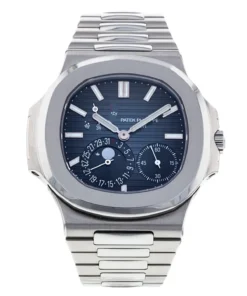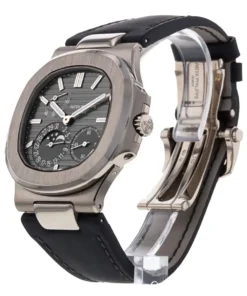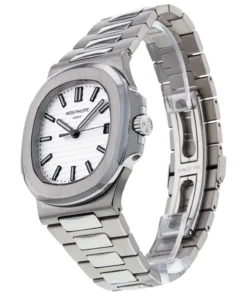Master of complications, Patek Philippe manufactures some of the most impressive and beautiful wristwatches in the world. With admirers including Queen Victoria and inventions such as the first wristwatch and the world’s first electronic clock under its belt, Patek Philippe has an illustrious heritage that continues to this day.
Read more
Patek Philippe History
Patek Philippe watches are considered by many to be the best in the world. The seeds of the company were sown with the collaboration of Polish immigrants Antoni Patek and Franciszek Czapek in 1839 to form Patek, Czapek & Cie. Then, in 1844, Antoni went to visit French watchmaker Adrien Philippe, to look at a new crown winding and setting system that the latter had developed. A year later, Czapek left the company, and Philippe joined in an official capacity in 1851. Ancienne manufacture d'horlogerie Patek, Philippe & Cie Société Anonyme was born.
The reputation of Patek Philippe watches grew with each new and inspired development. A few years after the company built its first minute repeater, Queen Victoria became one of the watchmaker’s many admirers when she viewed the first keyless pocket watch, one of the brand’s inventions, at the Crystal Palace Great Exhibition in 1851.
Then in 1868, the illustrious watchmaker set a massive horological milestone. Made for Countess Koscowicz of Hungary, this watch was of a new design that could be worn not on a chain like a pocket watch, but on the wrist. Patek Philippe produced the first wristwatch over thirty years before Rolex even existed.
Complications became the highlight of the manufacture’s watches, and it patented the perpetual calendar in 1889 and the split-seconds chronograph in 1902. The designs of many of the brand’s watches were so complex, they were not possible to build for almost another thirty years.
After the founders had passed away, Jean and Charles Stern purchased the company in 1932 and launched the Calatrava Ref. 96. Determined to keep the company true to its heritage, the Stern brothers built a watch for American banker Henry Graves that would remain the most complicated watch for over fifty years. This very special piece had twenty-four complications that took three years of research and five years of construction to complete.
Always ahead of the game, the brand produced the world’s first electronic clock in 1956, following the sunlight-powered clock it released several years before. This had no moving parts, and was the first to use a quartz crystal to regulate the time.
Patek Philippe still embraces new technology and looks to drive the industry forward with its research. In 2005 and 2006, under president Thierry Stern, the brand developed a hairspring and balance wheel made entirely from silicon, a lightweight and antimagnetic material that is now becoming popular in watchmaking. The hard work and dedication of the watchmakers and designers at the company have ensured the success of the Calatrava, Golden Ellipse, Gondolo, Nautilus, Twenty-4, Aquanaut, and Complicated and Grand Complications watches.
This condensed history does not cover all the amazing technological feats the company developed over the years, but believe the hype—Patek Philippe watches more than deserve their reputation for some of the best watchmaking in the world.















